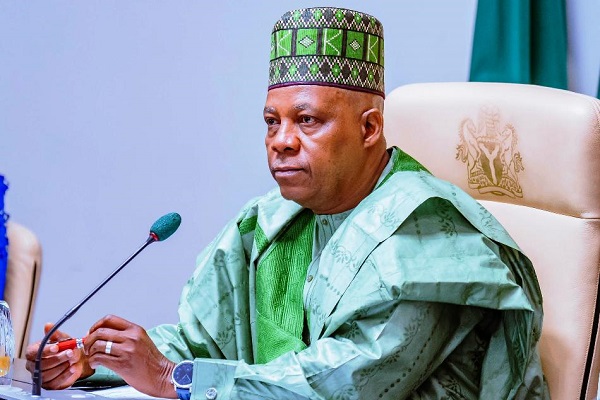By Nduka Chiejina,The Nation
Copyright thenationonlineng

The Federal Government has called on Nigerians to seize the opportunity to align government policies, private sector innovation, and development finance towards building a thriving economy where small businesses flourish, industries expand, and prosperity is widely shared.
Vice President Kashim Shettima made the appeal in Abuja at the 6th Annual Lecture of the Development Bank of Nigeria (DBN). He was represented at the event by his Special Adviser on Economic Matters, Dr. Tope Fasua.
According to Shettima, the theme of this year’s lecture, “Positioning Nigerian MSMEs for Growth in a Dynamic Policy Environment”, speaks directly to the government’s Renewed Hope Agenda.
He said micro, small, and medium enterprises (MSMEs) remain central to economic growth and national development.
“MSMEs are not peripheral actors; they are the lifeblood of our economy, accounting for over 80 per cent of employment and making a significant contribution to GDP,” the Vice President said.
“As the government provides policy clarity and enabling infrastructure, institutions like DBN are critical partners in translating that vision into action, ensuring that every entrepreneur, from the farmer in Kano to the digital innovator in Lagos, can access the tools to thrive.”
Earlier in his remarks, the Managing Director of DBN, Dr. Tony Okpanachi, revealed that the Bank had disbursed over N1.1 trillion to MSMEs across the country as of December 2024.
The funds were channelled through 79 Participating Financial Institutions to support over 700,000 businesses.
“These figures represent more than just numbers; they reflect jobs sustained, dreams realised, and enterprises positioned for growth,” Okpanachi said.
He acknowledged that MSMEs have faced significant challenges over the years, particularly limited access to finance, which has hampered their growth and sustainability.
However, he pointed to recent interventions, including the inauguration of the National Council on MSME, as a sign of renewed commitment to the sector.
“In recent years, we have seen a new dawn and a rekindled hope for MSMEs in Nigeria with unwavering commitment to alleviating their challenges,” Okpanachi said. “We at DBN align strongly with this agenda and are doing a lot to ensure that MSMEs continue to prosper and flourish. Nigerian MSMEs, with their resilient, creative, and adaptive DNA, can rise stronger, provided we equip them with the right tools, access to finance, knowledge, and enabling policies.”
Read Also: FX reforms position Nigeria for economic growth, business expansion
Delivering this year’s lecture, the Managing Director and Chief Executive Officer of Melvine Teas, Flora Mutahi, urged African entrepreneurs to scale their businesses and bridge the gap between the continent’s large number of enterprises and their relatively low contribution to economic growth.
Mutahi noted that Africa has about 24 million MSMEs, representing 22 percent of the global total, yet they contribute only 40 percent to the continent’s GDP. By comparison, MSMEs in India account for 50–60 percent of GDP, while SMEs in Europe contribute between 53–60 percent of global GDP, despite having fewer enterprises.
She attributed the disparity to infrastructure bottlenecks, fragmented markets, and poor access to capital, stressing that Africa receives only one percent of global venture capital funding. She also cited data from the African Development Bank showing that while 10–12 million young people enter the job market annually, only 3 million jobs are created.
Calling for a mindset shift among African entrepreneurs, Mutahi said: “We must really buckle up, pull up our socks, and build our MSMEs to stand on local, regional, and global platforms.”
She outlined four pillars that she believes are critical for success: a clear sense of purpose in solving customer problems; solid business models supported by advisory structures; strong systems and processes to avoid bottlenecks; and leadership that empowers teams as businesses expand.
Mutahi concluded that with resilience, innovation, and the right support, African MSMEs could transform into sustainable drivers of growth and job creation across the continent.



